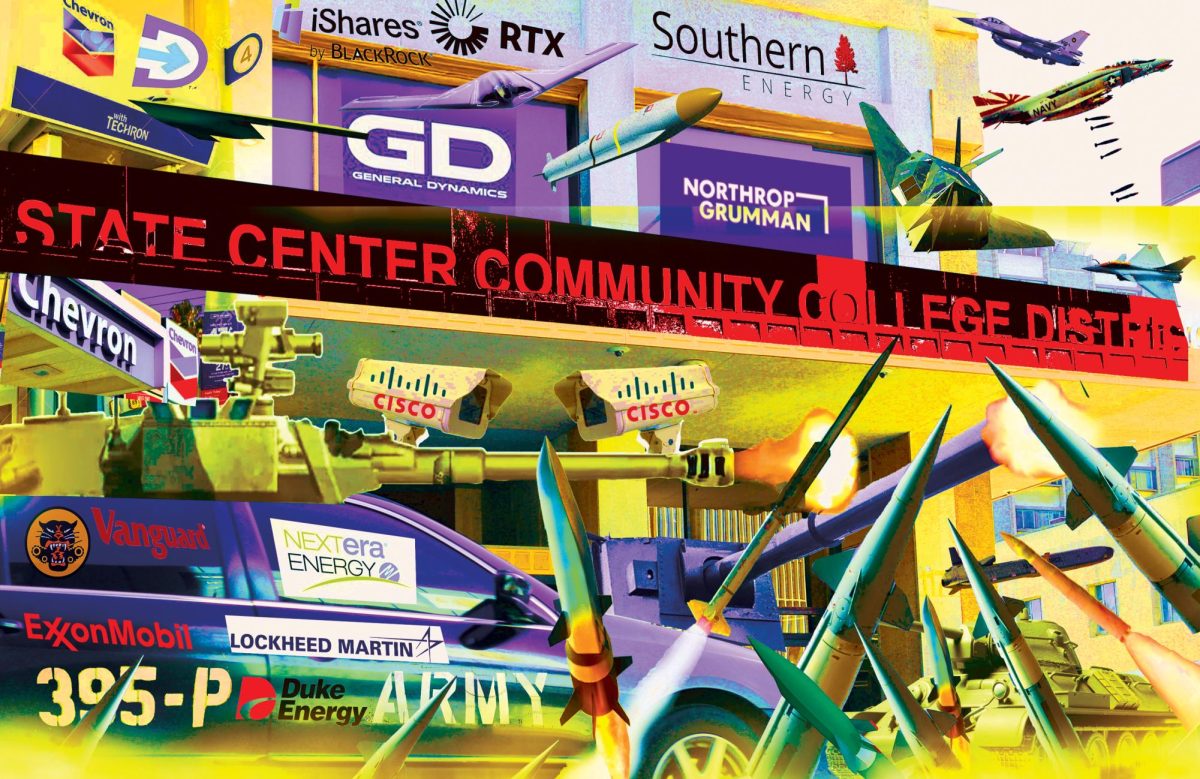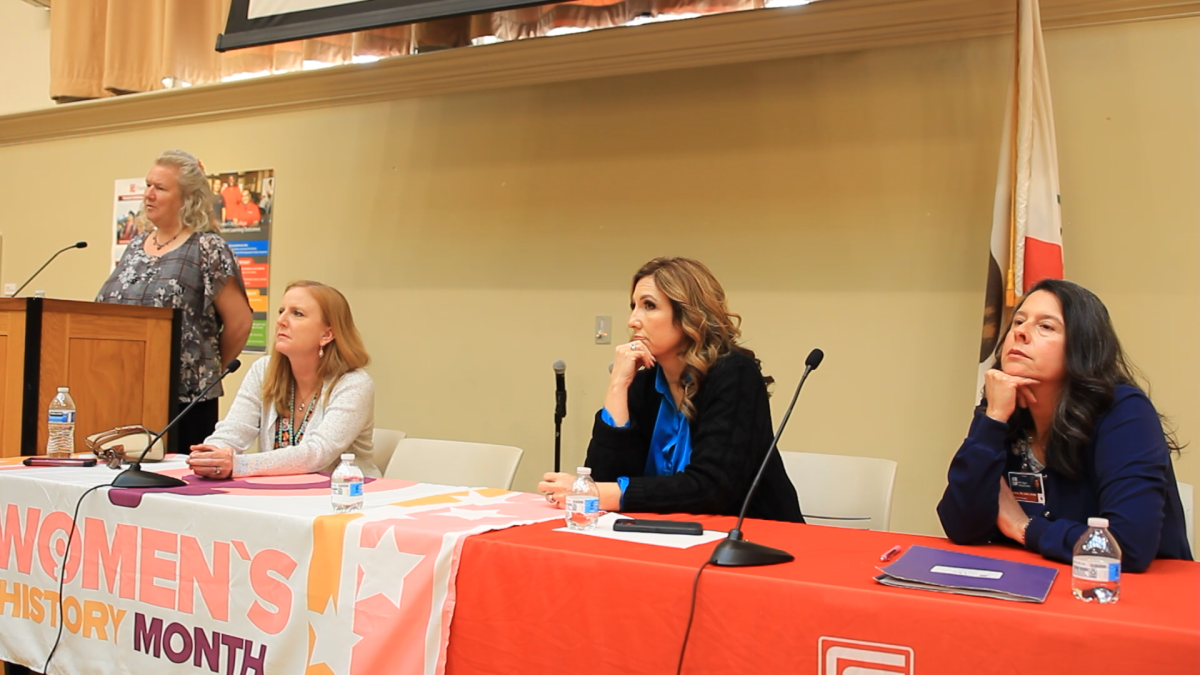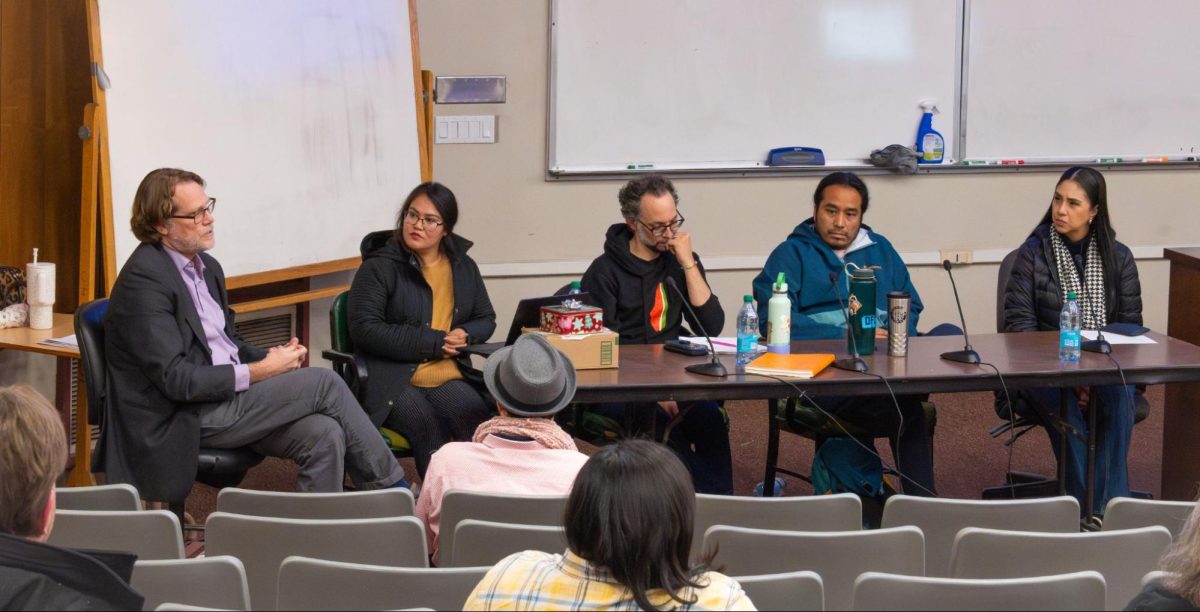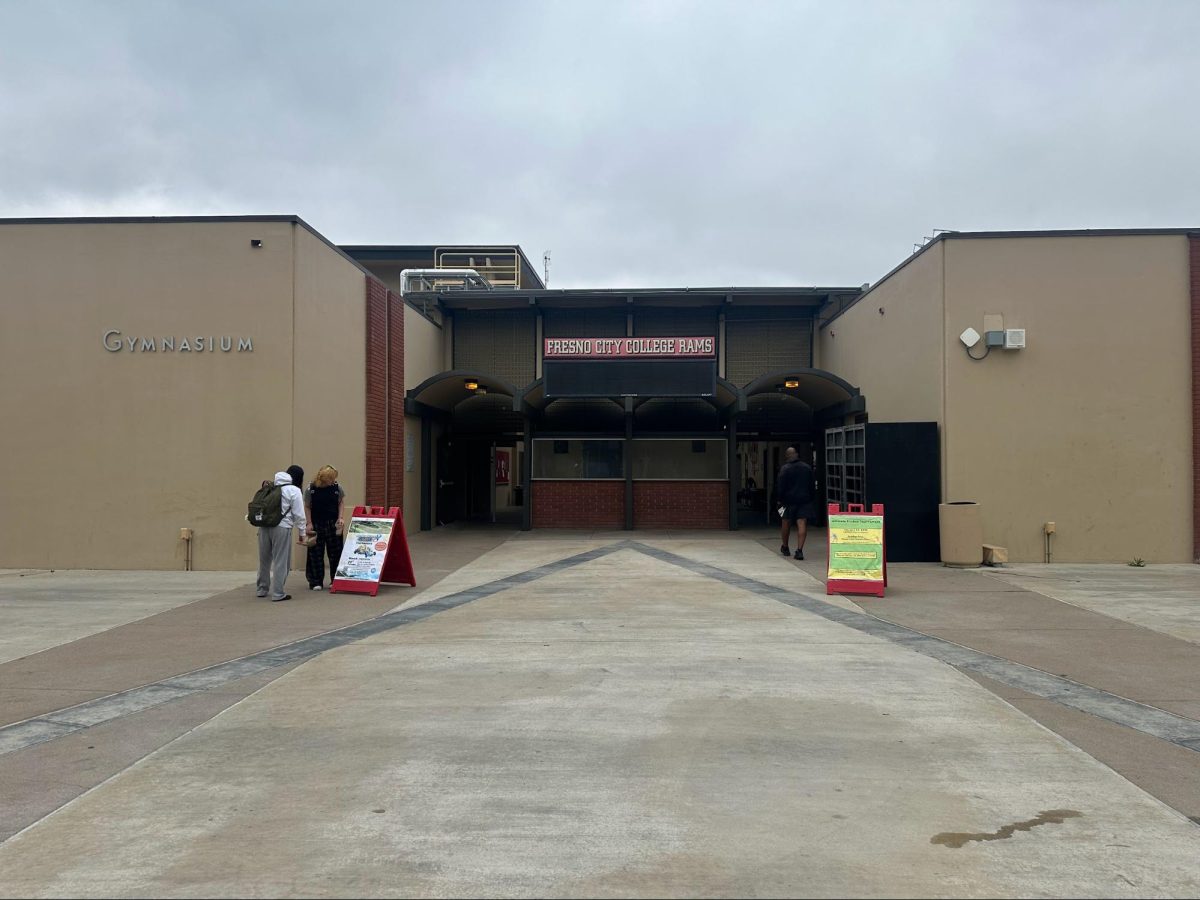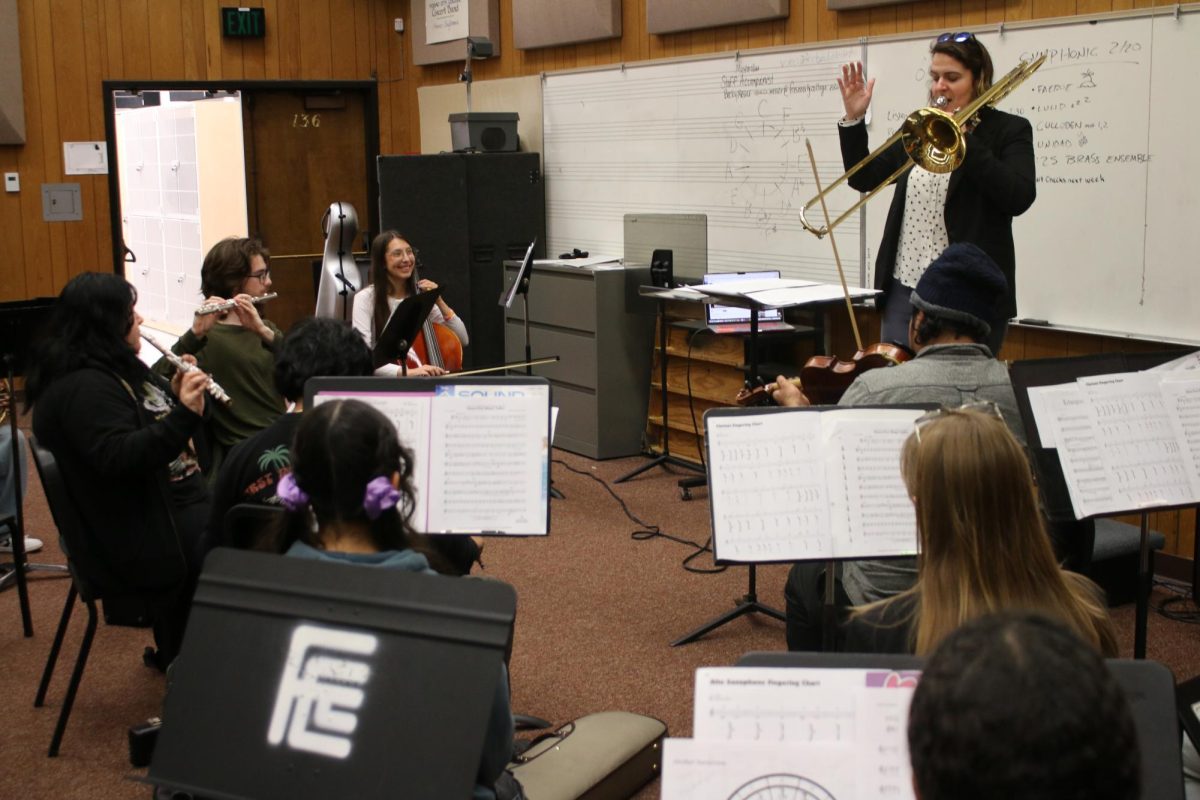The North American Indigenous Student’s Association celebrated Native American cultures and histories in the free speech area of Fresno City College last Thursday.
Numerous components of Native American culture were represented during Thursday’s celebrations. Students and faculty members in the area took in the aroma of sage which enriched the surrounding air, not to mention the smell of Aunt Nancy’s famously delectable fry bread tacos.
Merchant booths featured handmade weavings, indigenous art and information about varying cultures and traditions. The Native American Veteran’s Association was on hand to provide information to FCC veterans about what services may be available to them.
Performances included professionally executed traditional dances, songs from the Four Directions drumming group, and duets and dances which had nearly every participant swaying to the beat.
The co-founder of NAISA was also on hand to witness and embrace the continued progress of the organization. With the support and guidance of the late Madelyn Grey Eyes, a former FCC counselor, Richard Verdugo formed what is now known as NAISA back in 1976. That same year, Verdugo helped usher in what would be the first indigenous cultural events at FCC.
Richard Verdugo’s life began in a gang-saturated Fresno neighborhood. As a teenager, he pursued a life of deviance until receiving guidance and inspiration from a sheriff’s deputy assigned to his neighborhood. His mentor, alongside the guidance of elders, persuaded Richard to pursue a life in law enforcement through the FCC’s police academy program.
While attending the college, Verdugo was a celebrated athlete. “I still have the Rampage article from 1975-1976 picturing me in the 400-meter hurdles,” Verdugo recalled. “My hurdling abilities were directly attributed to running from the police as a child.”
Upon completing his sheriff’s deputy training, Verdugo specialized in gang mediation. He served as a deputy for 31 years. Through the willingness of others, Richard came full circle by utilizing his life experience to help preserve human dignity.
Thursday’s event also produced tragic and sobering stories of distant and living histories.
Former FCC professor Michael Black Bull recounted many brutal and tragic stories that are absent or nearly lost in U.S. history. His central message to those whose ancestors suffered was that the current existence of Native American people is not a matter of miraculous chance. In many instances, the preservation of culture required active resistance and the proactive preservation of genetics and values.
Bull’s speech was followed by a touching story from Cato James, a survivor of the U.S. government’s devastating Native American boarding school program. Within these institutions, physical, sexual and emotional abuse ran rampant. A great many children suffered lifelong damage resulting from complex post-traumatic stress disorders.
Children who dared express elements of their cultural heritage like speaking their native tongue were beaten into submission. Many children completely lost touch of their heritage and never spoke with their families again. American Colonel and founder of the Carlisle Indian boarding school, Richard Henry Pratt infamously decreed “Kill the Indian; save the man.”
To deal with the trauma perpetuated at the school and the loss of his family, James said he resorted to heavy drinking by the time he was only 8 years old. With the help and support of former FCC counselor, the late Carlos Gonzales and considerable prayer and meditation in a traditional sweat lodge, Cato has remained clean and sober for 15 years and has long since graduated from the college.
As Cato departed from the stage, he implored those in attendance to, “Stay in school and fight for your knowledge.”
By all accounts, NAISA’s celebration of indigenous culture was a tremendous success. Public interest and participation remained high throughout the day. Students and faculty gathered to listen to profound and informative speeches and to enjoy the many varieties of song and dance demonstrated at the festival. The acclaimed “best Indian tacos in the Valley” sold out as the celebrations came to a close.
The event offers a glimpse of the seemingly unending variety of culture among First Nations, tribes and clans throughout the land. Through this effort, NAISA and her leadership help to preserve and nurture an unyielding movement.
For more than 35 years, NAISA has actively worked to preserve the American Indian movement by showcasing a variety of Native American values while honoring indigenous nations, tribes and clans. NAISA’s work extends to scholarship programs for indigenous students.
Categories:
FCC Celebrates Native-American Culture
Story By: Matthew Elliott, Rampage Reporter
April 11, 2012
Story continues below advertisement
0
More to Discover

